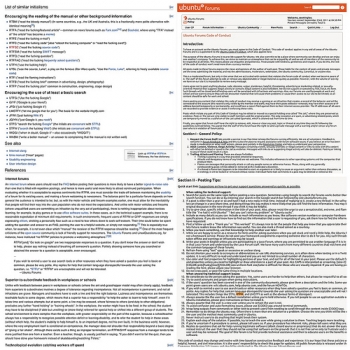Do You Understand The "Security Lingo"? A Very Short Glossary Of Security System Terminology

Choosing the right home security system to protect your property, and the safety of your family members, is confusing enough. However, having to deal with the "security lingo" is the manuals that come with the installation is downright frustrating!
What do all those cryptic sounding terms mean? First and foremost, let's define what a security system is: in the most simple terms, it is an interconnected system of components monitoring a given area.
Let start! What in the world is EOL? It stands for the end of line resistor - but what exactly does that mean? The end of line resistor supervises your line to prevent possible tampering with it: not cutting it (that's what the alarm is for), but from shorting in order to simulate the closed zone. The end of line resistors should be placed on the detection device.
What is a partition? When you have two partitions, you basically have two separate systems that share the siren output. Therefore, a partition can be defined as any zone that can be controlled independently.
If you're wondering what the zone is - the zone is defined as any single detection device (or a group of single detection devices) connected to a single output on a system. Each of these devices should be on its own zone. Different zones represent different areas of your home and property. That way, each zone can be separately armed and disarmed to grant access at specific times.
What is access control? Access control is a system that secures a given area, be it a house, driveway or a gated community, and grants access only to authorized users. It can exist in layers, where the first layer starts at the gate with an access card or code, the second layer may be an electric fence, the third layer cameras monitoring the driveway, and the fourth layer locks the doors and windows. Access can be controlled digitally using the internet or a cell phone.
What are sensors? Sensors are that part of your security system that detects a threat: break-in, motion, fire, freeze flood, carbon-monoxide etc. There are many types of sensors. A door or window sensor detects when the door or window gets opened.
For example, a smoke sensor detects smoke particles (it sometimes comes with a heat detector which detects a rapid temperature increase in the area) and warns you if you're in danger of a fire. On the other hand, a freeze sensor work to detect when the area it protects reaches a dangerously low temperature, therefore saving your pipes from freezing.
A flood sensor is typically installed in a basement. Its job is to detect water before it does a great deal of damage or floods an area. The glass break sensor detects the frequency for glass breaking and alerts you if someone breaks one of your windows. Carbon monoxide detects carbon monoxide (CO), a toxic gas produced by incomplete combustion, that cannot be otherwise smelled or seen. When the levels of carbon monoxide reach a dangerous level, a carbon monoxide sensor will warn you.
What exactly is home automation? In practice, home automation means that you can use any web-enabled device (such as a smartphone) to access not only your home's security system features, but also locks, lighting, thermostat etc.
What is a personal security device? A personal security device is a small device you typically wear as a pendant around your neck, or place in your pocket. In case of an emergency, you can alert emergency services that you're in need of help.
What is remote access, then? Remote access is an ability to access your home security system through any web enabled device (such as through your smartphone) in order to view your system's status, receive e-mail or text alerts, or view your camera feed.
And what is access code? Access code is typically a four-digit code that allows you to arm and disarm a security system. For added protection, this code cannot be used to change the access code itself, or to access programming codes. Some home security systems allow for multiple access codes. This way it can be racked who has armed and disarmed the system.
What does it mean to arm or disarm the security system? You arm the security system when you turn it on. You disarm it when you turn the security system off. Simple as that!
